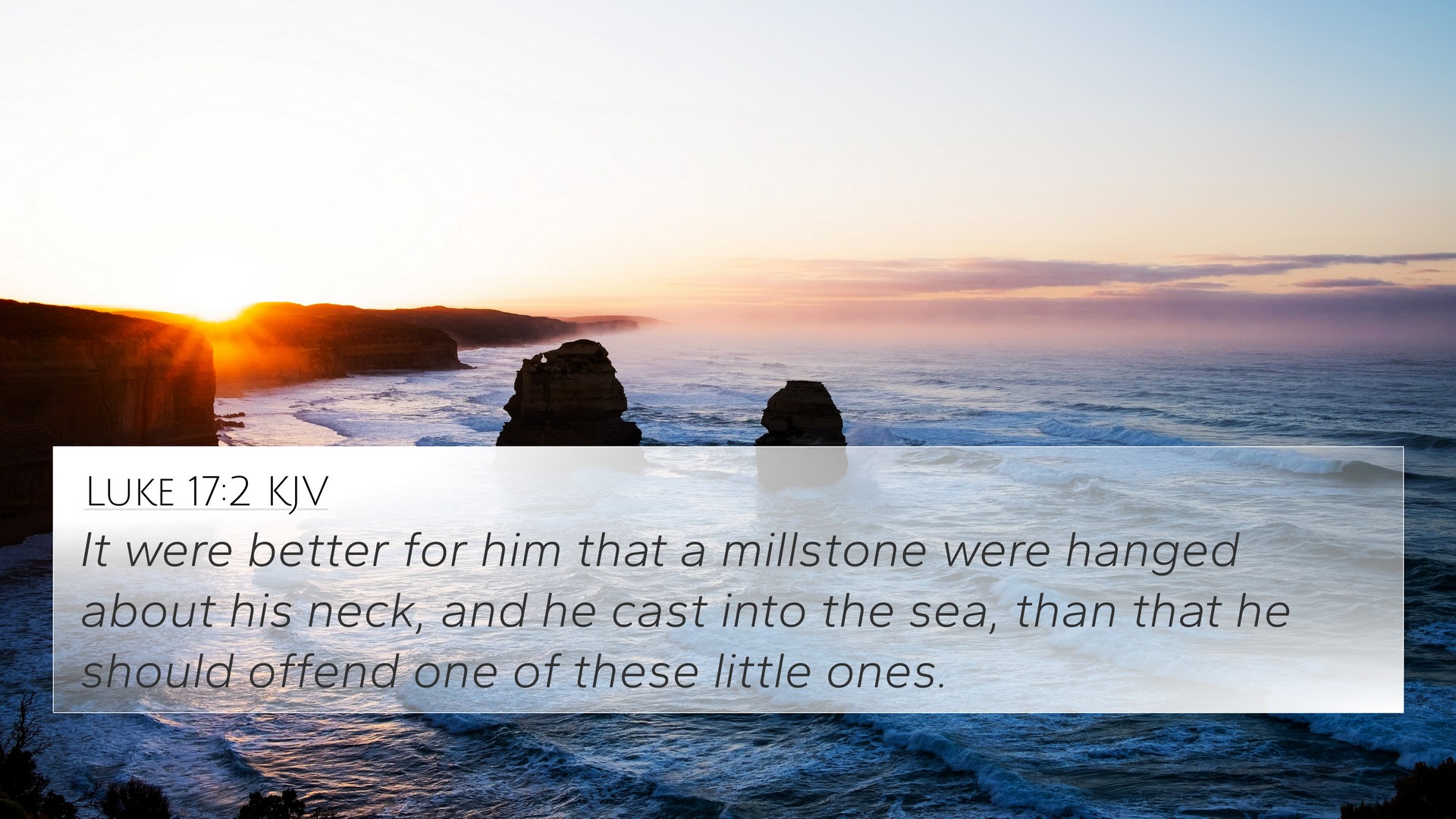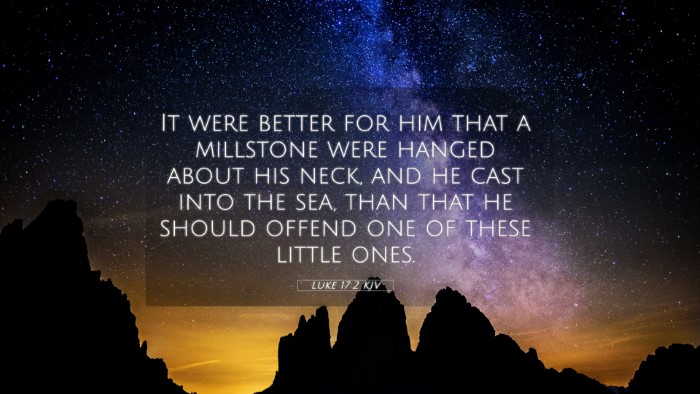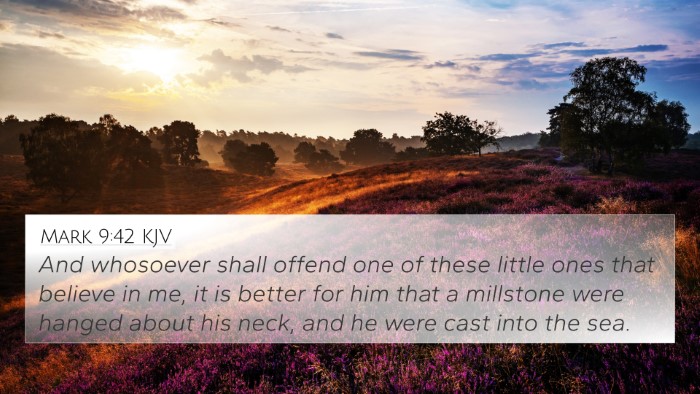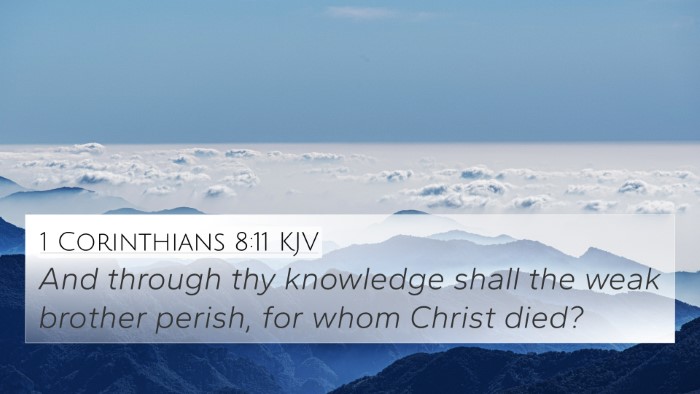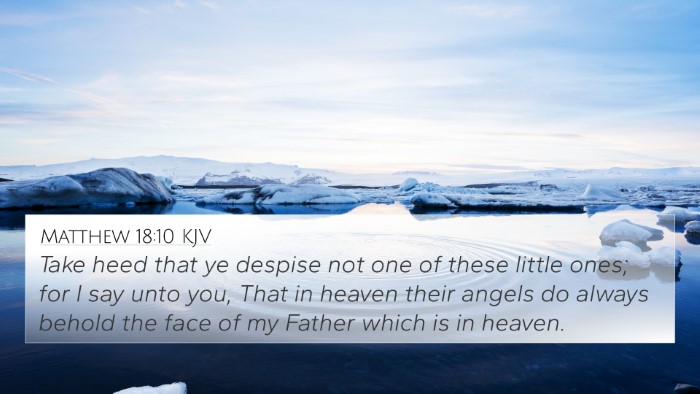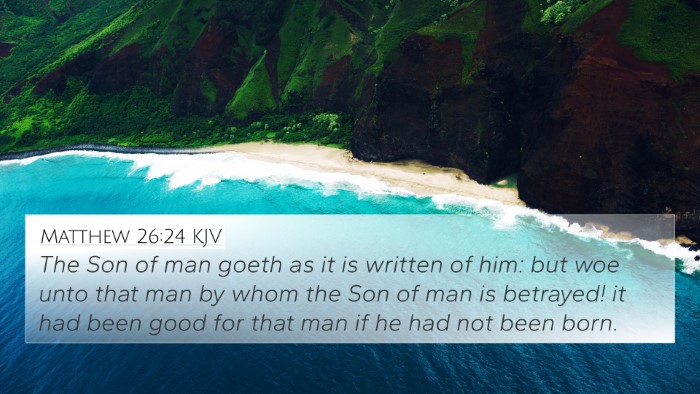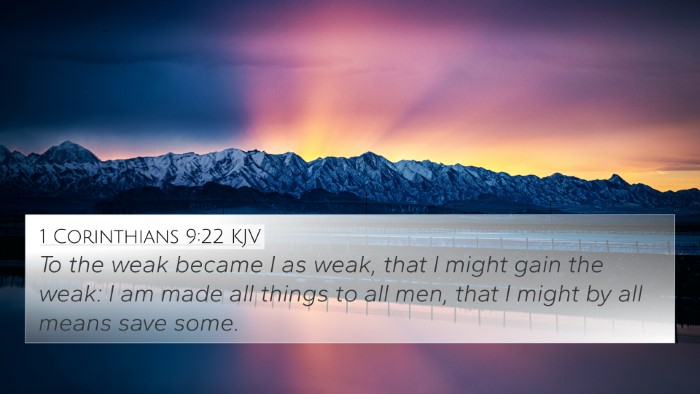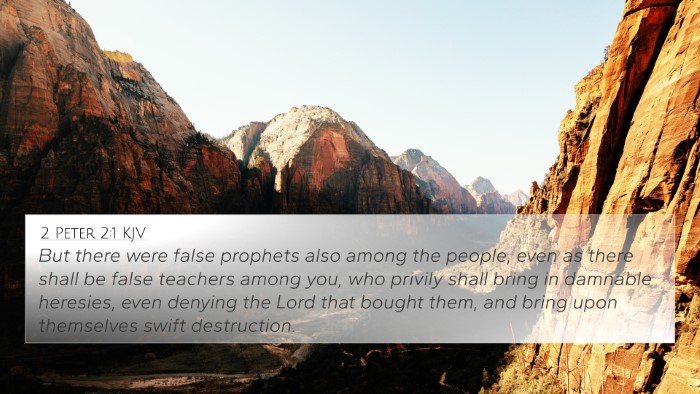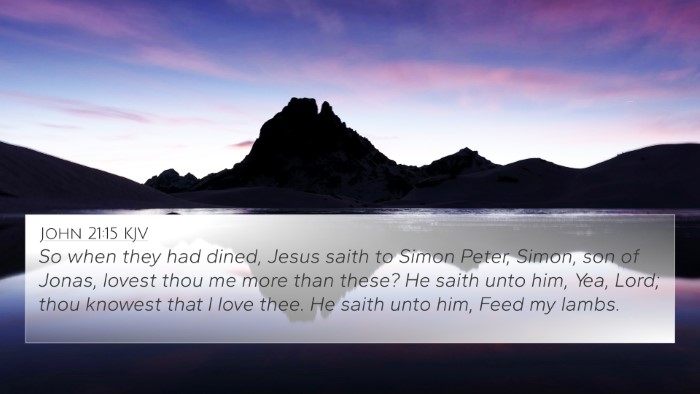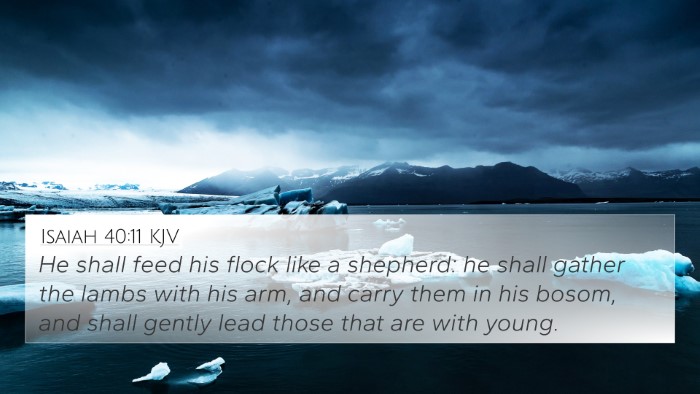Understanding Luke 17:2
Luke 17:2: "It would be better for him if a millstone were hung around his neck and he were thrown into the sea than that he should cause one of these little ones to sin."
Summary of Meaning
In this verse, Jesus emphasizes the grave responsibility that one has when influencing others, particularly those who are vulnerable or innocent, referred to here as "little ones." The metaphor of a millstone signifies extreme punishment for causing others to stumble in their faith or morality.
Commentary Insights
-
Matthew Henry:
Matthew Henry emphasizes that this verse warns against the severe consequences of leading others into temptation. He underscores God's care for the vulnerable and the dire consequences that await those who prey on the innocent.
-
Albert Barnes:
Albert Barnes comments on the hyperbolic nature of the imagery used by Jesus. He notes that while the description of drowning with a millstone is extreme, it serves to illustrate how seriously God views the act of causing another to sin.
-
Adam Clarke:
Adam Clarke offers insights into the cultural significance of the millstone, stating that it symbolizes a heavy burden. His interpretation aligns with the viewpoint that leading others into sin results in significant spiritual repercussions.
Theological Implications
This verse invites believers to reflect on their influence on others and the responsibility that comes with it. The warnings against leading "little ones" astray are both a challenge and a charge to cultivate a supportive and uplifting environment in one's community.
Cross-References
The following Bible verses relate to Luke 17:2 and reinforce its message:
- Matthew 18:6: “But whoever causes one of these little ones who believe in me to sin, it would be better for him to have a great millstone hung around his neck and to be drowned in the depth of the sea.”
- Mark 9:42: “And whoever causes one of these little ones who believe in me to stumble, it would be better for him if a millstone were hung around his neck and he were thrown into the sea.”
- James 3:1: “Not many of you should become teachers, my brothers, for you know that we who teach will be judged with greater strictness.”
- Matthew 5:19: “Therefore whoever relaxes one of the least of these commandments and teaches others to do the same will be called least in the kingdom of heaven.”
- 1 Corinthians 8:12: “But when you sin against your brothers and wound their conscience when it is weak, you sin against Christ.”
- 1 Thessalonians 5:14: “And we urge you, brothers, admonish the idle, encourage the fainthearted, help the weak, be patient with them all.”
- Romans 14:13: “Therefore let us not pass judgment on one another any longer, but rather decide never to put a stumbling block or hindrance in the way of a brother.”
Connections Between Bible Verses
Luke 17:2, along with its cross-references, provides a clear vision of the themes of accountability and responsibility in the Christian faith. The theme of protecting the vulnerable is echoed throughout Scripture, showing that these ideas are not isolated but part of a broader biblical narrative.
Thematic Bible Verse Connections
Here are some important thematic connections related to Luke 17:2:
- Vulnerability of the Innocent: Scriptures emphasize the necessity for believers to protect and guide the innocent.
- Accountability in Leadership: Leaders and teachers are held to stricter standards due to their influence over others.
- Encouragement vs. Temptation: The difference between guiding others to faith and leading them into sin is stark and challenging.
Tools for Bible Cross-Referencing
Utilizing a Bible concordance or a Bible cross-reference guide can significantly enhance your understanding of how Luke 17:2 interlinks with other scriptures. These tools help find connections and similar themes, reinforcing the interpretation of verses.
Inter-Biblical Dialogue
Through cross-referencing, we can trace a dialogue between the Gospels and the Epistles regarding our conduct as believers. The emphasis on caring for others and avoiding causing them to sin reflects a continuous theological dialogue about moral accountability.
Conclusion
Luke 17:2 serves as a powerful reminder of the weight of our influence on others, particularly the vulnerable. By understanding this verse through various commentaries and cross-references, believers are challenged to live responsibly and morally, recognizing the spiritual importance of their actions.
